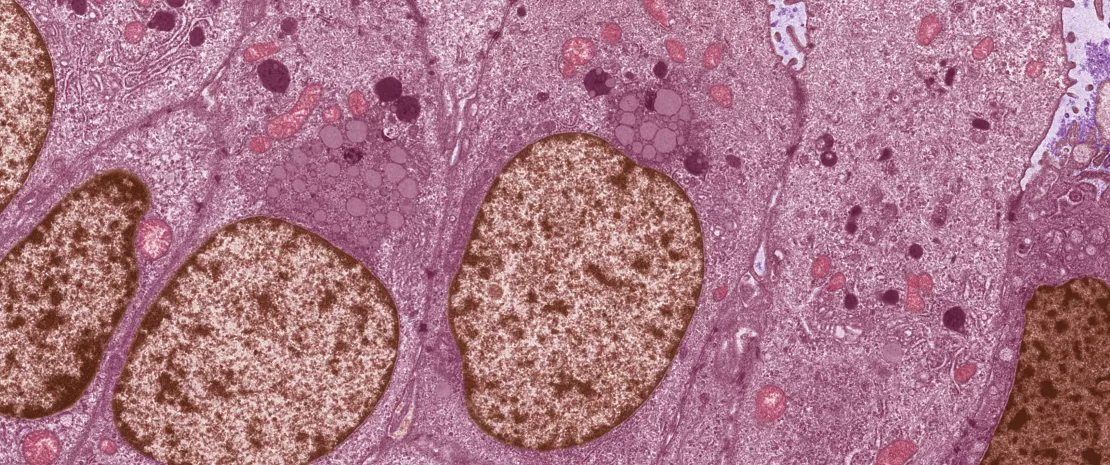Breast cancer: a bacterium in the intratumoral microbiota is involved in chemoresistance
A bacterium present in the tumor microbiota of breast cancer is believed to promote cell proliferation and chemoresistance in breast cancer cells. How? Through the binding of a bacterial toxin to the NOD1 receptor in tumors.
Lay public section
Find here your dedicated section
Sources
This article is based on scientific information

About this article
Murine models have demonstrated that the breasts harbor a microbiota capable of modulating carcinogenesis and the efficacy of chemotherapy. Hence the work published in 2024 by a Chinese team 1 investigating the involvement in breast cancer of the bacterium Bacteroides fragilis, and more specifically its enterotoxigenic strain (ETBF), which produces the proteolytic toxin BFT-1, known to induce diarrhea and colonic lesions when present in the digestive system.
Tumor microbiota predicts resistance to treatment
First finding: in breast cancer, the presence of ETBF bacteria in tumors is associated with a poor response to (sidenote: Neoadjuvant therapy Treatment administered prior to surgery or radiotherapy. It generally aims to reduce the size of the cancer, enabling less extensive surgery and/or a smaller radiotherapy field. Explore MSD Manual ) taxane-based chemotherapy, one of the main therapeutic strategies for breast cancer, particularly triple-negative breast cancer. Further experiments, this time in mice, indicate that the presence of the toxin BFT-1 and activation of the NOD1 receptor in mammary tumors predict a poor response to chemotherapy. The BFT-1 toxin and the NOD1 receptor are thus thought to be involved in chemoresistance in breast cancer, which could justify profiling the tumor microbiota in breast cancer: these biomarkers could predict potential failure and enable treatment to be fine-tuned in advance, thereby improving the response to chemotherapy.
670,000 Breast cancer caused 670,000 deaths globally in 2022 ²
½ Roughly half of all breast cancers occur in women with no specific risk factors other than sex and age ²
A new chain of mechanisms deciphered
Further in vitro research and research using mouse models also enabled the team to understand the underlying mechanisms. This research showed how the ETBF tumor bacterium is capable of mediating chemoresistance in breast cancer: the toxin BFT-1, secreted by ETBF, binds to the NOD1 receptor; NOD1 interacts with the protein kinase GAK, which phosphorylates the NUMB tumor suppressor to enhance its lysosomal degradation; the NOTCH1-HEY1 signaling pathway is inactivated, inducing multiplication of breast cancer stem cells.
Conversely, inhibition of NOD1 and suppression of the ETBF bacterium significantly increase the efficacy of chemotherapy by suppressing breast cancer stem cells.
No. 1 Breast cancer was the most common cancer in women in 157 countries out of 185 in 2022 ²
0.5-1% Approximately 0.5-1% of breast cancers occur in men ²
Many more questions remain
However, contradictory roles for NOD1 in tumor progression have been reported: NOD1 can, as in this study, promote tumor progression (ovarian, esophageal, and colon cancers) or conversely induce cell apoptosis and inhibit cell proliferation (papillary thyroid carcinoma, hepatocellular carcinoma).
Another point to elucidate: the microbiota of the mammary glands and their tumors are complex, so much so that the dysbiosis associated with cancer is unlikely to be limited to a single species. Thus, other tumor taxa such as Clostridia, Alphaproteobacteria and Actinobacteria are also enriched in patients who do not respond to treatment. Further studies are therefore required to determine all the bacteria involved.










